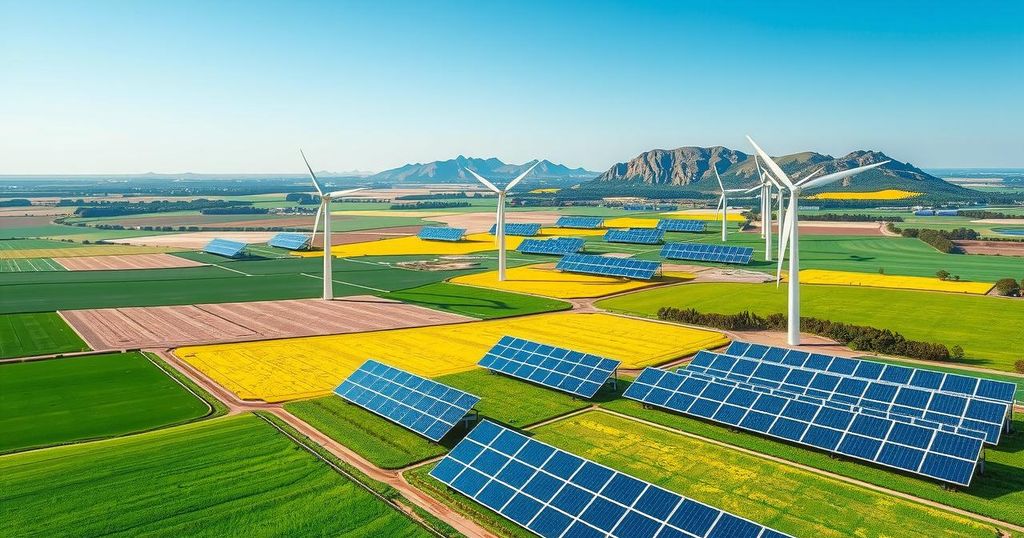Technology
AMAZON, ANTÓNIO GUTERRES, ANTONIO GUTERRES, ASIA, BRAZIL, CHINA, CLIMATE JUSTICE, ENVIROMENTAL_ISSUES, ENVIRONMENTAL POLICY, EUROPEAN COMMISSION, EUROPEAN UNION, GUTERRES, INTERNATIONAL COOPERATION, LU, LUIZ INÁCIO LULA DA SILVA, MEXICO, NORTH AMERICA, PARIS AGREEMENT, SOUTH, SOUTH AMERICA, UN, UNITED NATIONS, URSULA VON DER LEYEN, XI JINPING
Isaac Bennett
0 Comments
Global Leaders Forge Climate Action Alliance Ahead of COP30
The recent Leaders Meeting on Climate showcased global cooperation between major countries in tackling climate change. Notable leaders emphasized the importance of adhering to international law, encouraging technology sharing, and committing to future climate targets. With the 30th Conference of the Parties around the corner, the need for unified climate action and investment in green technology is urgent.
A recent virtual summit aimed at addressing climate change brought together significant leaders from both the Global North and South, signaling a united front for climate action. Organized by UN Secretary-General António Guterres and Brazilian President Luiz Inácio Lula da Silva, the meeting showcased contributions from influential figures, including Chinese President Xi Jinping and EU Commission President Ursula von der Leyen. The summit took place at a crucial moment, as the 30th Conference of the Parties to the UN Framework Convention on Climate Change approaches, emphasizing the need for coordinated global efforts in climate governance.
The timing of this summit was particularly important, with the looming 30th Conference of the Parties scheduled for later this year in the Brazilian Amazon. This year marks a decade since the Paris Agreement was established. Amidst rising geopolitical tensions and challenges to the multilateral system, nations are reevaluating their commitments to international priorities, trade, and energy security. These shifts pose risks, potentially disrupting carbon reduction efforts if countries become perceived as retreating from climate commitments.
Despite the landscape of competing global issues, the significance of climate-related expectations cannot be overlooked. Investment decisions made now may shape future climate impacts. Investments in fossil fuel infrastructures, while potentially lucrative in the short term, risk becoming irrelevant if countries pivot towards ambitious climate actions or renewable alternatives become more viable.
China’s position as a leader in green industry highlights the opportunities inherent in renewable energy. Guterres remarked on the economic potential of green energy, declaring it as “the economic opportunity of the century,” reinforcing that no entity can halt the progress of the clean energy transition. This sentiment reflects a growing recognition of the benefits associated with advancing sustainable practices.
As the European Union and China approach the milestone of 50 years of diplomatic relations, the focus on climate cooperation has been pivotal. Observing the substantial, ongoing collaboration between these parties in climate matters, it is evident that this anniversary presents an ideal opportunity to reaffirm these commitments and further enhance their relations in environmental efforts.
The need for cooperation also extends to countries within the Global South, especially those with emerging economies, which face pivotal decisions regarding their developmental trajectories. There is a prime opportunity for them to establish green infrastructure and industries as the world confronts climate change challenges, including increasing extreme weather incidents.
Prior to the virtual summit, Brazil’s André Corrêa do Lago, who will lead COP30, visited Beijing, indicating Brazil’s seriousness regarding climate governance. This underscores the global climate leadership role that Brazil and China hold as major economies in the Global South at this critical juncture.
President Xi’s address during the summit emphasized multilateralism and adherence to international law as essential for effective climate governance. He called for cooperation in sharing green technologies to ensure accessibility for all countries, especially developing nations, which are often at a disadvantage in these negotiations. Xi’s commitment to assist developing nations enhances this collaborative spirit.
He also announced that China would disclose its 2035 Nationally Determined Contributions ahead of COP30, which, if sector-specific, could provide a clearer roadmap for businesses transitioning to low-carbon technologies, an essential element for effective climate response.
Maximizing joint ventures for manufacturing green technologies in emerging markets is critical now, as speeding up the climate transition requires global cooperation in producing eco-friendly technologies. This transition, besides providing employment, can also fortify political backing for climate initiatives and minimize trade hostilities.
In line with President Xi’s assertion regarding legal framework, a move towards drafting and implementing cohesive climate laws by all nations is vital. Establishing solid legal frameworks will underpin not only climate goals but also societal transition equity. China’s existing environmental rulings, along with public interest prosecutors, fortify this framework, ensuring that advancements in coal energy do not lead to spiraling emissions.
Developed nations must fulfill their obligations under the UNFCCC by leading climate change efforts, creating green employment opportunities, and offering necessary financial assistance to help developing countries mitigate and adapt to climate impacts. The unified message from global leaders highlights the urgency and necessity of proactive climate measures. The world is gearing up for a dynamic transition toward a low-carbon economy, prompting all sectors to brace for inevitable changes.
In summary, the Leaders Meeting on Climate and the Just Transition reveals a renewed commitment among global leaders to tackle climate change as a collective effort. The involvement of major economies, including China, underscores the increasing recognition of green technology’s potential as an economic driver. As the 30th Conference of the Parties approaches, all nations must also align their investments with climate objectives to secure a sustainable and equitable future. Moving forward, a unified approach towards addressing climate challenges is essential for effective global governance.
Original Source: www.chinadaily.com.cn




Post Comment